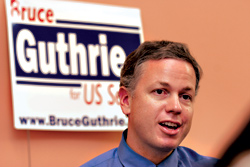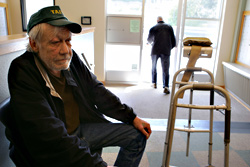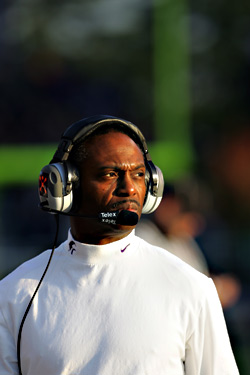Six years after the City Council enacted limited civilian oversight of the Seattle Police Department, those involved are still trying to figure out how to do it without a legal showdown with the powerful Seattle Police Officers Guild. At issue is what the Office of Professional Accountability (OPA) Review Board, a group of three citizens, can reveal in reports to the council and the public about the integrity of OPA, an SPD internal affairs unit that investigates complaints about misconduct.
The review board is supposed to look through about 10 percent of the case files OPA handles—officer names are redacted—and report to the council twice a year. But the board hasn’t issued a report since April 2004 because its members fear being sued for inadvertently revealing officer identities, even if they don’t know the names. Last year, review board Chair Peter Holmes threatened to resign because neither the mayor nor the city attorney would address the board’s legal exposure.
Now Holmes, whose term expires next year, is calling the process a sham and is turning to the City Council. Council member Nick Licata, who chairs the public safety committee, says he’ll consider legislation that could clear up the issue, but he makes no promises. “This is such a hot issue that I could not bring it to a vote” of the full council, says Licata. Outside oversight is a sore point with the police union, and contract talks begin again next year. City Attorney Tom Carr and Mayor Greg Nickels’ office say they want to make the review board work. Says mayoral spokesperson Marianne Bichsel: “We’d support making civilian oversight stronger.”
The trouble is that changes to OPA are subject to negotiation with the union, whose members fear the board and Licata want access to unexpurgated OPA reports, which Holmes says would save time. Says the union’s president, Sgt. Kevin Haistings: “Their job is simple: Is internal affairs doing its job effectively? Why do they need to know officer names, period? In our opinion, the credibility of the board is greater to both the public and officers because they don’t know who they are dealing with.” Haistings says letting review board members see officer names would prejudice them against officers who might show up in multiple complaints, effectively putting the review board in a role of disciplining cops. “We embrace the notion of officer confidentiality,” says Holmes. But if board members can’t be sure what constitutes revealing a cop’s identity, they cannot issue reports.
City Attorney Carr says he’ll propose a solution to Nickels. Licata, long an advocate of civilian oversight, says he won’t be able to address the matter through his committee until next year.







